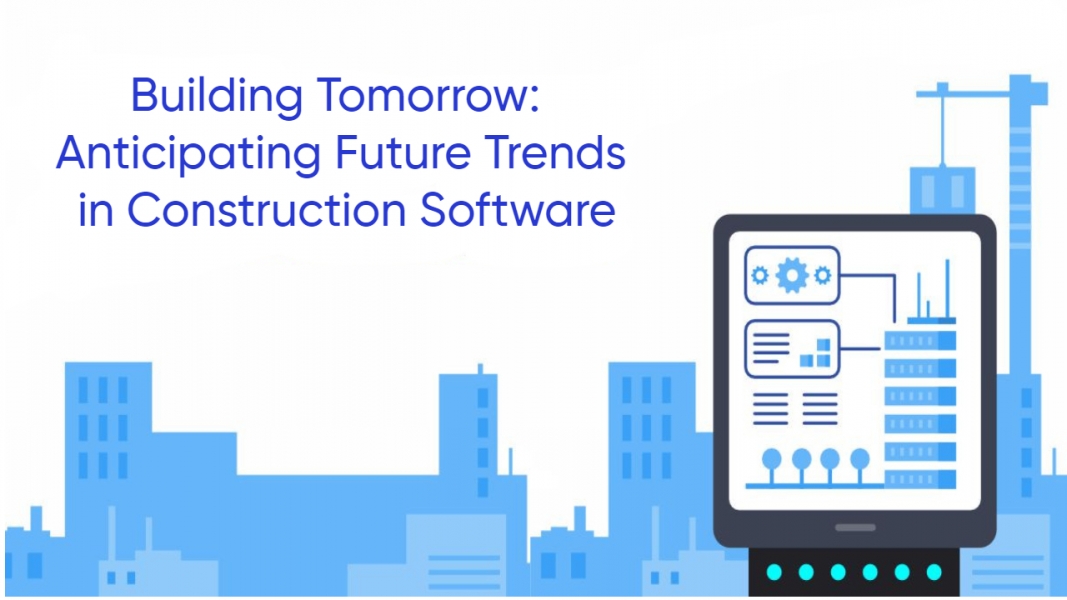- sales@itaakashsoftware.com
- DSK Rohit, office No-13, 3rd Floor, 1264/2 Apte Road, Deccan Gymkhana, Shivajinagar, Pune - 411 004. Maharashtra, INDIA
Building Tomorrow: Anticipating Future Trends in Construction Software
- Home
- Blog Details
Building Tomorrow: Anticipating Future Trends in Construction Software
What Are Future Construction Software Trends? That is a question which has been on our minds since the construction and real estate industry has been on the rise with the use of AI and Big data analytics. In recent times, construction software has experienced numerous technological advancements that have completely transformed the planning, management, and execution of projects.
Understanding Tech Trends
The continuous evolution of our digital landscape has sparked a proliferation of technological trends. From breakthroughs in artificial intelligence and machine learning, to innovations in virtual and augmented reality, technology continues to revolutionise industries and our everyday lives - driving innovation while increasing connectivity, efficiency and accessibility exponentially. Construction businesses and individuals must stay abreast of emerging technologies so as to harness these trends' power for driving innovation, productivity improvements and creating unforgettable digital experiences for themselves and others alike.
As we look ahead, numerous emerging trends are poised to further refine construction software, enhancing efficiency, productivity, and safety across the sector.
1. Building Information Modeling (BIM) Development:
BIM has transformed the construction industry by digitizing physical assets for stakeholders. Its evolution continues, emphasizing interoperability, cloud collaboration, and advanced data analytics to further enhance its capabilities. Future BIM solutions may facilitate seamless information exchange between software platforms to increase coordination and decision-making during project lifecycle management.
2. Internet of Things (IoT) Integration:
The advent of IoT technology has transformed the construction industry by enabling direct connectivity of physical devices and equipment to the Internet, facilitating real-time monitoring and data collection. In the near future, construction software is set to integrate IoT sensors into equipment, tools, and building components, allowing remote monitoring of performance metrics such as operational status and safety indicators. This data-driven approach promises to optimize equipment usage, improve preventive maintenance protocols, and enhance overall job site safety measures.
3. Augmented and Virtual Reality Applications in Construction:
AR/VR technologies are rapidly gaining traction in the construction industry for visualizing designs, planning projects, and training purposes. Construction software is poised to integrate AR and VR functionalities, offering immersive experiences for project stakeholders. From virtual walkthroughs of building designs to realistic site simulations, AR and VR will soon become integral tools in enhancing project visualization and collaboration ultimately improve collaboration, communication and decision-making across the construction industry.
4. Artificial Intelligence and Machine Learning Advances:
AI and machine learning technologies are on the brink of transforming construction software by automating mundane tasks, streamlining processes, and enhancing predictive capabilities. These AI-driven solutions will leverage extensive data analysis to detect patterns, forecast project risks, optimize resource distribution, and enhance predictive accuracy. Furthermore, machine learning algorithms will further advance construction scheduling, cost estimation, and quality control for greater project delivery efficiency and accuracy.
5. Cloud-Based Collaboration and Mobile Solutions:
Cloud-based collaboration platforms and mobile applications have swiftly become essential components of construction project management software. Cloud technology enables seamless real-time communication, document sharing, and task management across distributed teams. Meanwhile, mobile apps empower field workers to access project information remotely and communicate directly with stakeholders, thereby enhancing productivity on job sites and streamlining decision-making processes.
Technology In Construction Is The Future:
The future of construction software is promising, fueled by dynamic trends such as the advancement of Building Information Modeling (BIM), the integration of the Internet of Things (IoT), and Artificial Intelligence (AI)/Machine Learning (ML).
Augmented and Virtual Reality (AR/VR) applications are reshaping design visualization, while cloud-based collaboration and mobile solutions facilitate smooth communication and task management. Together, these advancements are driving efficiency, productivity, and safety in construction project management, propelling the industry to new heights of innovation and sustainability.



Write A Comment